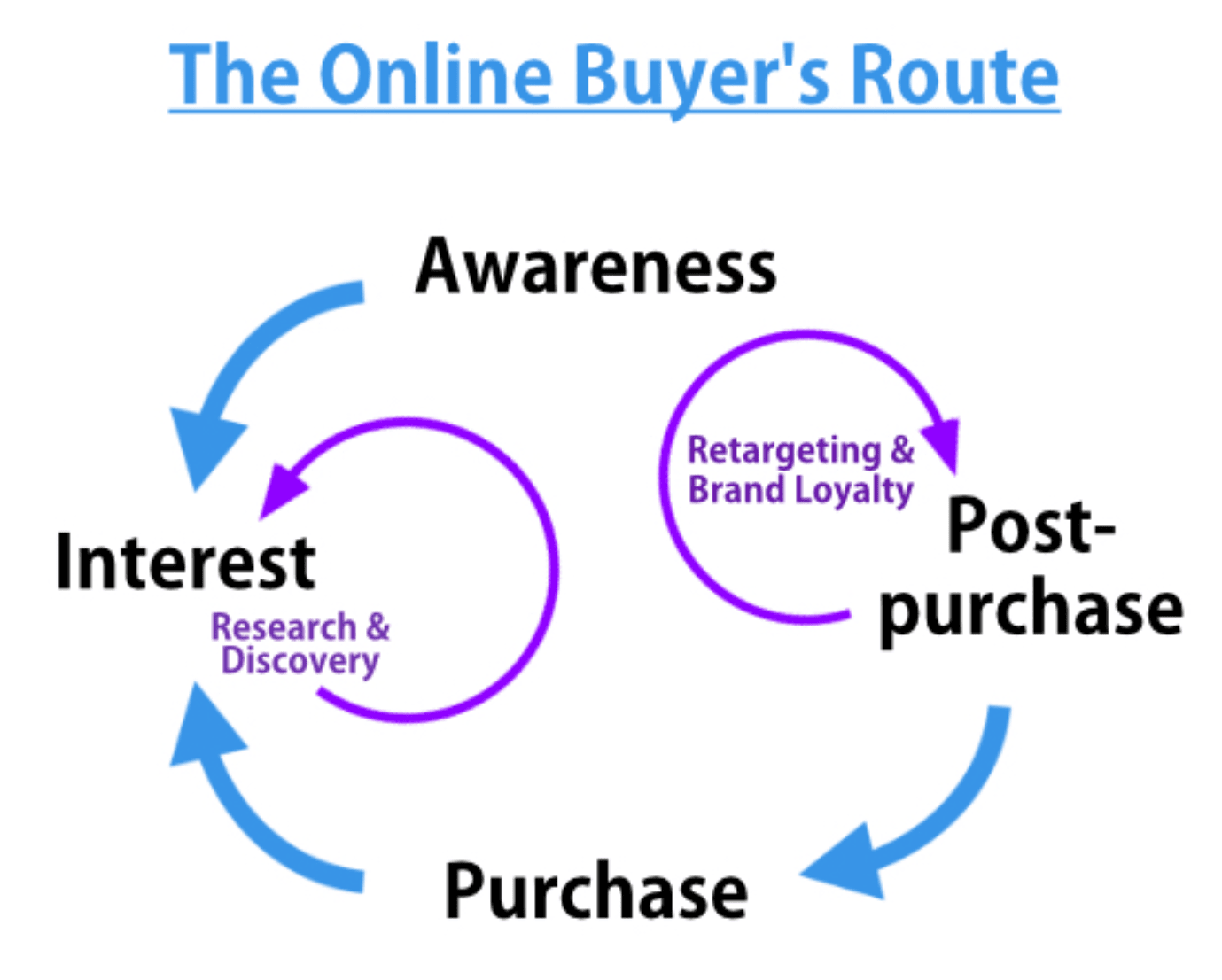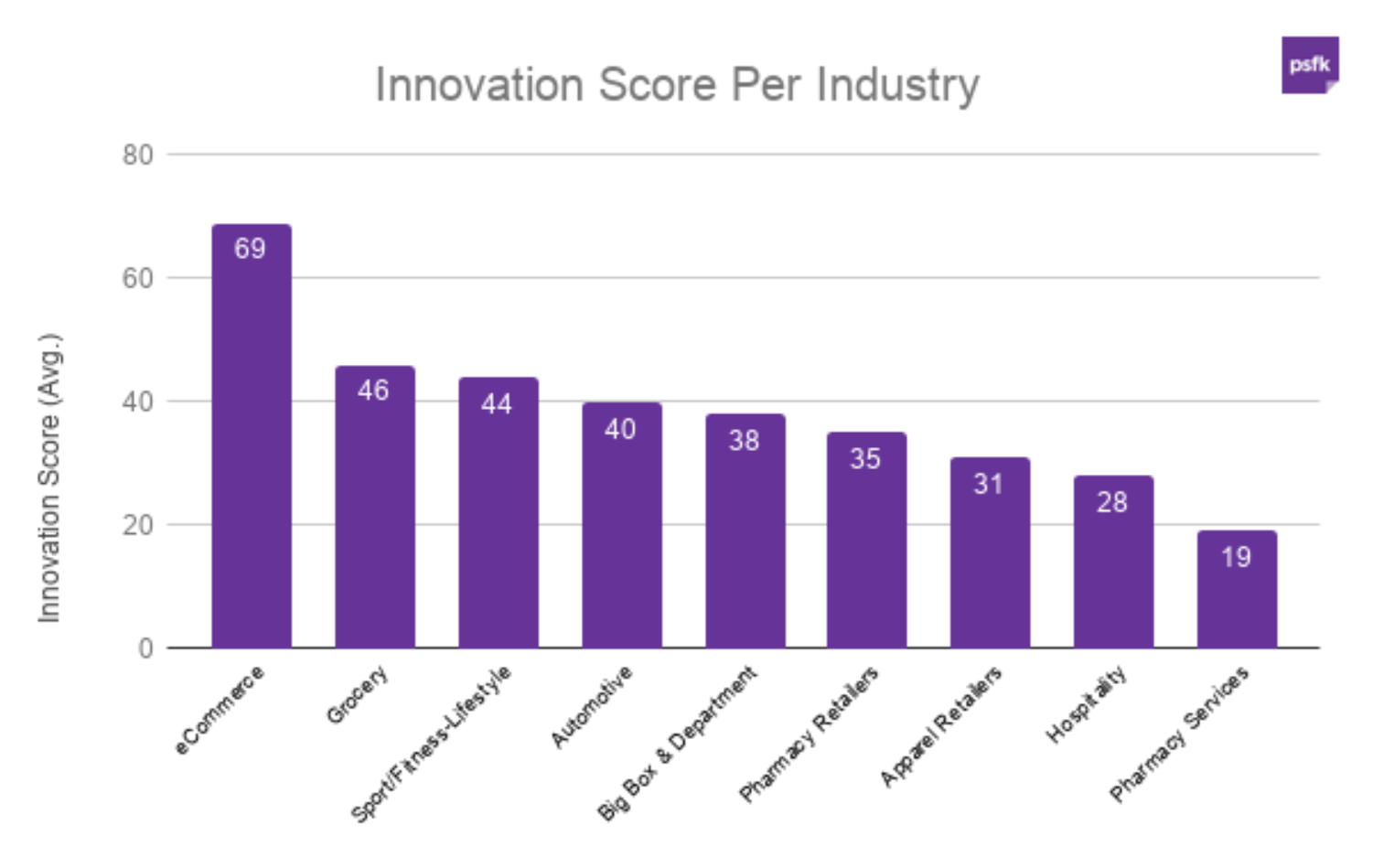3 Reasons Why eCommerce Is Like Online Dating



Electronic commerce or eCommerce entails the buying and selling of goods and services through the internet.
For the majority of people, eCommerce is something they do every day in acts such as purchasing from an e-tailer or online payment of bills.
Selling goods and services online is not a new thing really. This type of business has actually been going on for some time now. But back then people were not SO exposed to it compared to now.
There was also the issue of security and trust. It’s not like walking into a brick and mortar store, picking what you want, paying for it and walking away.
See the resemblance to online dating yet? Trust issues, not as new a thing as you thought, quite common, can’t imagine modern life without it. Any of these ring a bell?
Let’s take a closer look.
Where Did it All Start?
The history of eCommerce goes way back to five decades. Yes, you read that right!
The first eCommerce store, CompuServe Technology, was established by Jeffrey Wilkins and Dr. John R. Goltz in 1969. Its formation was built upon a dial-up connection.
CompuServe would later, 1980, introduce some of the preliminary forms of email as well as internet connectivity to the public. By the mid-1990s, CompuServe was already dominating the eCommerce arena.
eCommerce Growth
Over the years, eCommerce has gained growing popularity since it was discovered, and today, among the most popular activities on the internet is shopping.
According to research conducted by Gary Hoover, an eCommerce expert, the growth of eCommerce organizations has risen significantly across the board during the last 14 years.
Growth projections of eCommerce, a report that was released in February 2019, showed that revenues from eCommerce businesses would be more than $700 billion by 2023, in the US alone. See the statistics below:

Image source: Statista
The situation isn’t any different across the globe. The projections of eCommerce Growth also show a skyrocketing increase.
Consider the following data:
The diagram below shows how the eCommerce marketplace was in 2019. Out of the 2019’s $21 trillion global retail sales, $3.46 trillion were eCommerce sales – a growth of 17.9 percent from the 2018’s $2.93 trillion.

Image source: Digital Commerce 360
Online shopping has a lot of allure in it.
For instance, who wouldn’t love to shop at their leisure, even in the middle of the night? For sellers, eCommerce gives them the freedom to operate a business without necessarily having to rent or lease a space at a shopping mall. We all know just how expensive that is, right?
You only have to find a professional to create a webpage for you to begin displaying your goods and services for your target market to see. And the best part is that, amidst the rapid growth (which is always accompanied by intense competition), there are still many significant opportunities within the eCommerce marketplace.
However, while it sounds all easy and fast to achieve, running a successful eCommerce store demands a lot of effort, time, and resources.
Having a webpage or an online store doesn’t in any way guarantee you a successful online business. It calls for dedication and commitment. It is also not for the fainthearted because, at times, you will feel like giving up.
eCommerce = Online Dating
Since challenges are inevitable, an online entrepreneur must arm themselves accordingly to be able to fight for a space in the world of online business.
Ecommerce can be equated to online dating. The two activities have a lot of things in common. Of course, the very first common element is that they both happen via the internet, obviously.
Two people, complete strangers, meet on the internet, and then interact online for some time, before deciding to have that first date. It is both scary and exciting all at the same time.
The same case pretty much applies to eCommerce.
Two strangers (the seller and the buyer) locate each other on the internet. They build and a relationship, and if all goes well, they stick together for a long time – especially if the seller manages to delight the buyer during their first date (the first purchase).
There are numerous ways through which eCommerce and online dating can be compared. It all has to do with the factors that contribute to the success of both.
They include:
1. Overconfidence and being pushy ruins an otherwise good deal
In online dating sites like Tinder, Hinge, and more, there are all sorts of people. One typical personality you are likely to meet is the overconfident one. Such individuals assume that they are the best thing that could happen to you. God’s gift to humanity (and the dating pool, of course).
Due to their overconfident nature, such characters love to rush the process. Most of them appear pushy and are usually keen to close a deal way before time is right.
Imagine dealing with such a person on the internet. While confidence is a great thing, a date who puts their confidence right in your face and hence has the guts to keep appearing and disappearing as they please is undoubtedly boring, and comes off as inconsiderate.
Now, your overly confident date has a habit of talking over you. They never want to know much about you. All the two of you talk about – most of the time – is about them and their needs. You’ve realized that your date treats you like a sure thing and unfortunately fails to back up their swagger with anything you find particularly impressive.
The outcome?
Even if you had started liking them, it becomes hard or even outright impossible for you to remain interested in them. In any case, you are spoilt for choice, even in many other dating sites.
During the various times you’ve interacted with your date on the internet, you’ve realized that they are common, and the worst part, of no particular value. Perhaps the saddest part is that they aren’t aware of this vital fact.
You’ve already decided to walk away and never return, but you are still unsure of whether to tell them what put you off or not. You decide that it’s not worth telling them what put you off, but the surest thing is that you have concluded that it’s a case of mismatch, and you aren’t willing to take their crap anymore!
While running your eCommerce business, you must realize that the customers you’ve engaged with are not a sure thing. You need to understand that there are thousands of other online stores selling the same products and services. Avoid the behavior of engaging a customer, disappearing, and appearing, and then acting like no time has passed.
From the very beginning, show them that you are interested in fostering a mutually beneficial relationship. Rather than talk about your company and products all the time, seek to get detailed information about them.
In line with the products or services your company offers, seek to know the problems they are going through. From there, you can explain how your products can offer a solution. Rather than impose what you have, seek to know what they are really interested in. Use your resources to discover their likes and dislikes.
Nothing pleases a customer more than realizing that you care about their problems as well as the good things that are happening in their life. And while you may want to close a deal real soon, don’t rush it.
You must first make them interested, and the only way to do this is to foster a relationship first. `Interest` is a critical element in the online buyer’s route.

Image source: Lyfe Marketing
Understand where the customer is within the sales funnel, supply them with the right information, and when time is ripe, rope them in by offering them something so valuable they are compelled to take action right away.

Image source: Lyfe Marketing
That’s how leads convert into customers, and ultimately, brand evangelists.
2. The need for authenticity and consistency
A good number of people who have engaged in online dating can attest to meeting people who appeared to be in the process of finding themselves. The other thing they will tell you is that it didn’t take long for them to realize that the person on the other end seemed too good to be true.
After a few interactions, it became evident that the person they were interacting with was falling short on every promise. After careful analysis of the situation, they figured out that their date didn’t know who they were.
The situation worsens when you try to figure out who that person is because you are sure that they are different from what they present. And when you can’t figure out your date, it dawns on you that you are wasting your precious time since nothing good will come out of the relationship.
In any case, what good could come out from a person who fakes their profile picture, age, and practically everything?
Unknown to your date, you might have loved their real personality, and if not everything, a huge part of who they are – if only they acted themselves from the get-go. Sadly, they are caught up in a compare and despair mindset, and the behavior of their competitors informs most of their actions.
Your date is so entangled in that wannabe spot that they forget the beauty of taking the time to figure out who they are and then maintain authenticity. If only they knew that being authentic and consistent with their behavior would bear fruits to fulfilling, deep, and beneficial connections.
Now back to eCommerce!
What have you learned from the above online dating scenario?
When operating an eCommerce company, your brand’s personality must be not only authentic but also consistent. From the way you communicate with the customers and prospects to the information you share with the public through your different social networking sites, remember to remain true.
Whatever a prospect or customer learns about your brand via Twitter should be similar or identical across all the platforms, including your website and the emails they receive from you.
The most successful eCommerce stores acknowledge that a brand is like a person – unique. As such, they don’t imitate existing brands or competitors. By being authentic, they have earned genuine followers and customers.
They know that people can see right through it when they try to act like another brand, and that will cost their business. In that case, whether you are just starting or you’ve been in business for some time, consider creating brand values that support your core values, and this will help you build brand authenticity.

Image Source: Learning Hub
Brand authenticity has four major components, namely, consistency, credibility, integrity, and symbolism.
Bridging the authenticity gap
We live in an era where organizations and management are always under intense scrutiny. For this reason, eCommerce companies must seek to understand expectations.
Organizations that want to succeed must align what they say and their actions with their reputation (what others think about the brand). There is increasing pressure of linking the brand to reputation.

Image source: Fleishman Hillard
Companies can use the Authenticity Gap methodology to understand and proactively bridge the gap between the expectations of the audiences and their actual experiences with them.
By implementing the ideas offered by the methodology, eCommerce organizations can build genuine relationships with their target market capable of driving progress as well as opportunity.
Once you are authentic, consistency comes automatically. Since you know who you are and what you represent, you don’t have to force things. You know your values, and they guide your way of doing business.
When it comes to consistency, note that it can stand between you and a great brand. ECommerce entrepreneurs also need to appreciate that brand building is a slow process that demands carefulness and consistency.
What does this mean?
Every touchpoint that your company has with an existing customer or prospect, every product/service that you manufacture/sell, and every end product/service that you deliver, must be consistent. It will be a great disservice when you provide an astoundingly amazing end product today and then offer a significantly lower quality product tomorrow.
Do you ever wonder how some of the oldest companies, such as Procter & Gamble (P&G), are among the most loved and trusted brands? It’s all a matter of consistency. P&G has remained consistent throughout the over 180 years they have been in business.
As hard as it might appear, building brand authenticity is very much possible and achievable. Try putting honesty at the heart of everything you do. It will become extremely easy for you to speak about your purpose, live your brand mission, and, most importantly, you will be able to create fantastic sales and marketing campaigns capable of helping you rise above your rivals.
Just like in online dating, an eCommerce business must stay honest, simple, and true to its brand values and the audience.
3. Innovation – A critical success factor
Successful online dating requires one to be inspired, unpredictable, and original – at least that’s what the majority of brave people want in a partner.
On the dating sites and apps, you will find people who are entirely different. They are on the other extreme. These people are basically uninspired, highly predictable, and, worst of all, unoriginal. They use phrases they have heard “somewhere” – so common that you have also heard them a lot of times.
Such persons are unwilling to try anything new. They don’t care about updating their profile photos (can stay with the same profile pic for five years), and they aren’t even ashamed of admitting to having last changed their wardrobe fifteen years ago.
In other words, the person you are interacting with doesn’t innovate. Your date is comfortable with the lines, moves, and everything that he learned or discovered many years ago.
So, what kind of relationship can you have with such a person? It would mean making all the decisions for both of you, which translates to you doing all the work for them. For instance, you will always be the one choosing where and when to meet, the things you talk about, when to end the meeting and so on.
For crying out loud, that’s the most annoying person you can ever meet. Someone who neither delights nor inspires is a deal-breaker for most people. Since you are the one who has been carrying the weight of the relationship, and at some point get tired, you will not have to think twice about dropping them like a hot potato.
From the first time you interacted with them, you must have seen a red sign. While you’ve been holding on expecting your date to grow up and innovate, you knew from the very beginning that the fire was gone.
The same thing can happen with an eCommerce brand that lacks innovation – a potential customer can give up on you within the first five minutes of interacting with your company. It explains why a prospect can subscribe to your email with so much hope and excitement, but that’s as far as it goes.
They immediately notice how unhelpful, boring, and artificial your interactions are. If a prospective customer had installed your application, they hit the uninstall button.
Others unsubscribe from your emails, and if they don’t do all this, they become irresponsive. Yes, they’re ghosting you!
You even begin losing clients whom you thought were on their way to becoming brand ambassadors.
And you’re there wondering why?
The answer is simple. Your eCommerce business lacks innovation. You are telling your prospective customers what they have already heard. You are offering them nothing different from what they have been buying from your competition.
You cannot give them sufficiently good reasons to switch brands. Basically, the attention they gave to you wasn’t worthwhile. It was a complete waste of time, and they can’t stay. As such, they move swiftly to your competitor, who has something better to offer.

Image source: PSFK
Don’t wait for this to happen.
As shown in the image above, it’s quite evident that eCommerce tops the list on the innovation score per industry.
So, you must innovate! Don’t play catch-up. The business environment is speedily transforming and if you continue procrastinating, you will eventually be out of business.

Image Source: Thought Works
If you’ve not been innovating, you can rest assured that your competition has been doing it.
Innovation entails the creation of more effective products, processes, and ideas. For your case, it could mean executing new ideas, developing dynamic products, or improving services.
Innovation could mean creating entirely new and enhanced products/services to satisfy the rapidly evolving consumer needs and demands.
Your company may also choose to add value to the existing products or services in a bid to stand out from the competition, besides raising the perceived value of the product to the target market.
If approached correctly, innovation can stimulate the growth of your business and also deliver easy marketplace adaptation.
Other benefits of innovation in eCommerce include easy problem solving, increased productivity, enables delivery of better and more productive marketing campaigns, and lastly, increased ability to beat the competitors due to your innovative thinking.
Key Takeaways